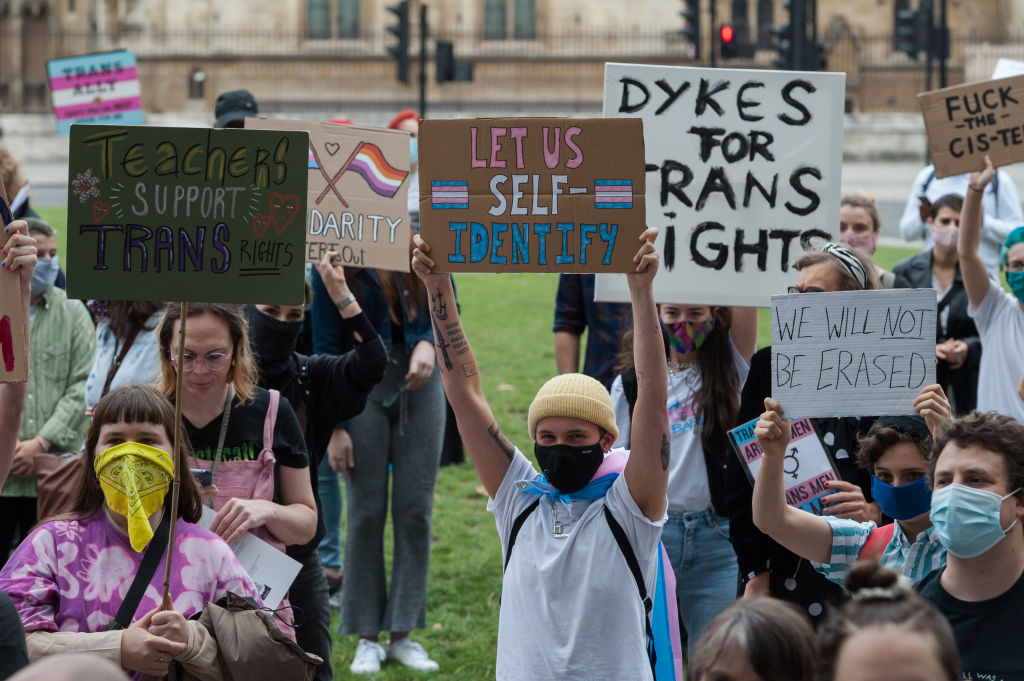A protestor asks for the right to self-identify their gender in the UK, which was one of the demands campaigners had for reform of the Gender Recognition Act. (WIktor Szymanowicz/NurPhoto via Getty)
The government has finally announced the results of the 2018 public consultation on the Gender Recognition Act – and, surprise surprise, the number of transgender people who responded is dwarfed by the number of people who simply added their name to a pre-filled response drafted by an anti-trans campaign group.
Eighteen per cent of the responses to the GRA consultation came via Fair Play For Women, a “women’s rights” organisation set up to campaign against Gender Recognition Act reform.
People who used the Fair Play For Women response template could add their name and email address, but not edit the pre-filled answers to 14 of the 22 questions.
This tactic saw 18,370 identical anti-trans responses form part of the public response to the consultation.
The government, helpfully, didn’t actually record the number of trans respondents to its enormous questionnaire about the UK law that governs the way trans people get legal recognition of their gender. And while several questions were meant to only be answered by trans people, the responses showed that cis people went ahead and answered these anyway.
The first question on the consultation was actually trans-specific. However, analysis found that a significant number of cis people answered it and so the number of responses “should therefore not be used as a reliable estimate of the proportion of consultation respondents who were trans”. Thank you, cis people, for rendering useless what could have been very helpful data.
Closer reading of the 186-page report reveals several clues as to the small proportion of trans voices in the data.
The second question was also for trans people only, and happily the “vast majority” of responses to this were from actual trans and non-binary people. This was just 12,140 responses – roughly two-thirds the number of trans people as there were people who added their name to the pre-filled Fair Play For Women response.
Separately, just 1.1 per cent of all consultation respondents said they had previously applied or were currently applying for legal recognition of their gender – literally the whole point of the GRA – showing, again, the tiny proportion of responses that came from people actually affected by this law.
Gender Recognition Act reform: What is actually happening.
Liz Truss’ announcement on Gender Recognition Act reform has been largely met with disappointment by leading LGBT+ rights groups.
The minister for women and equalities confirmed Tuesday (22 September) that she has scrapped plans first announced by Theresa May in 2017 to “streamline and de-medicalise” the process by which trans people have their gender legally recognised.
Despite a public consultation showing overwhelming support for the right of trans people to self-ID, for medical requirements to be dropped and for non-binary people to be recognised, the government is pressing ahead only with what Stonewall has described as “minor administrative changes”.
Rather than rethinking the Gender Recognition Act wholesale, applications are to be taken online, while the £140 fee will be reduced to a “nominal amount”. Truss, in her statement, said “it is the government’s view that the balance struck in this legislation is correct”.
